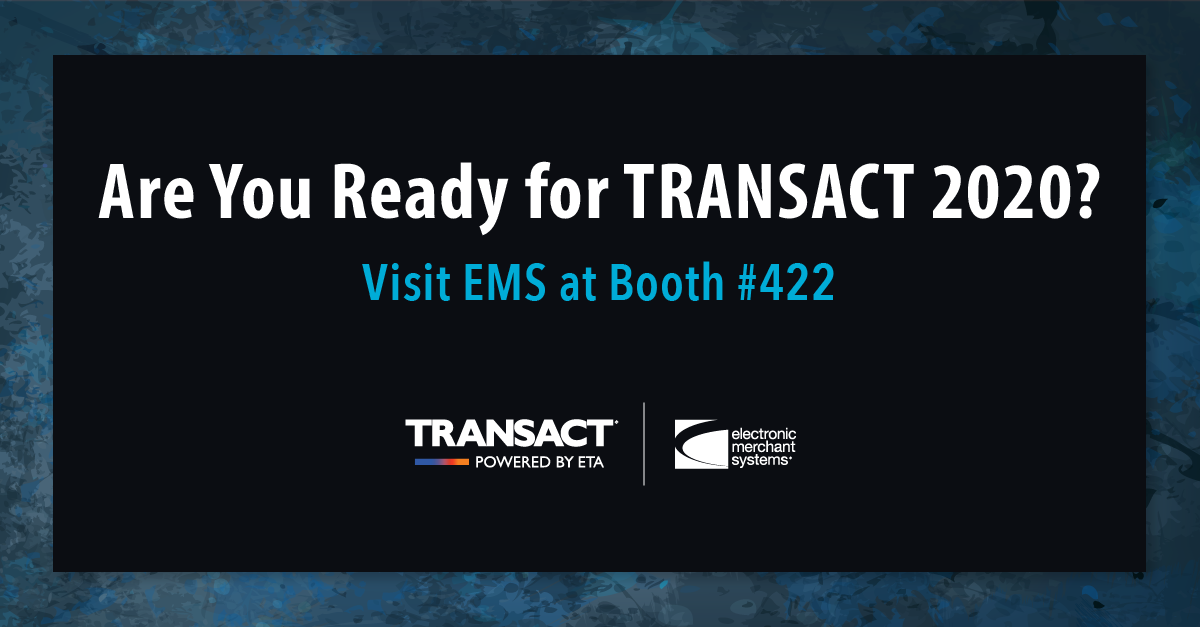Are you dreaming of taking your business to the next level? You can work hard marketing your business, building relationships with your customers, and offering the best experience possible to every person you contact, but sometimes that still isn’t enough. It’s not your fault – you’re doing everything in your power to gain notoriety! Sometimes it’s just too difficult to stand out from your larger, well-known competitors.
If it’s time to get your business noticed, consider becoming a Registered ISO. In this post, we’ll discuss what this means and how it could help your business grow.
Table of Contents
- What is a Registered ISO?
- Is it Worth My Time to Become a Registered ISO?
- How Do I Get Registered?
- Agent Opportunities with EMS
What is a Registered ISO?
ISO stands for Independent Sales Organization. It is a third-party payment processing company that is authorized to handle merchant accounts for businesses. It’s also often referred to as an MSP, or Merchant Service Provider.
A Registered ISO is an independent company that sells for a larger ISO, such as Electronic Merchant Systems. A Registered ISO can have sub-agents, so if you’re ready to be your own boss and oversee sub-agents, this may be the path for you.
We’ll fully explore how to get registered later in this post. Before we move on, however, you should know that to register, you will need to choose the specific form or structure that best suits your business. There are four options to choose from:
Corporation
This is a business owned by its shareholders. However, it is considered a separate legal entity from its owners. This protects you and any fellow shareholders from legal liability for the corporation’s debts or actions. Corporations are required to register with their state and file annual paperwork.
Partnership
This is any joint business that is run by two or more people. Unlike corporations, partners are typically personally liable for all debts related to the partnership. That means that if someone were to sue your business, they could go after personal assets such as your home or car. Partnerships are typically not required to file with their state.
Limited Liability Company (LLC)
An LLC is a business owned by its members. Some states will recognize an LLC that is run by one person, but others require more than one owner. The paperwork required for an LLC protects the owners from any personal liability.
Sole Proprietor
While the simplest business form, a sole proprietorship can be risky. You are the only owner, are not required to file any paperwork, but are personally liable for all business actions and debts. We recommend consulting with a qualified business attorney before choosing to become a sole proprietor.
The most common business forms for ISOs are corporations and partnerships, but you can register as any of the forms listed above.
Is it Worth My Time to Become a Registered ISO?
The short answer is: it depends on your business. We know, that’s incredibly vague. We can provide you with information and insights that may help your decision, but ultimately, you’ll have to answer this question for yourself.
The biggest differences between being an unregistered sales agent and a registered ISO are:
-
- Unregistered agents must sell under the name of the larger ISO they are partnered with. Registered ISOs can sell under their own business name.
- Unregistered agents cannot employ sub-agents. Registered ISOs are permitted to sign sub-agents.
- Unregistered agents must sell under the name of the larger ISO they are partnered with. Registered ISOs can sell under their own business name.
If you have a small operation with no potential sub-agents, the cost associated with registering as an ISO may not be worth it right now. Once you grow to a size where it makes sense to sign sub-agents, however, registering can be very beneficial. Plus, the amount of money you make from your sub-agents may offset the registration fees you will be required to pay.
At the end of the day, it’s your decision. Consult with your business stakeholders, partners, or legal team for advice on registering. It’s also a good idea to complete a cost/benefit analysis. Be sure to include the actual registration fee costs along with an estimation of the cost of your time.
If you're interested in learning a bit more about the payment processing industry as a whole before making your decision, check out our Pyramid of Payment Processing infographic. This can give you a good idea of the hierarchy of the industry and where your jurisdiction would fall as a Registered ISO.
How Do I Get Registered as an ISO?
So, you’ve decided to become a Registered ISO. Fantastic! This is a big decision for your business, and not one to be taken lightly. It will require plenty of diligent work on your part, but can certainly take your business to the next level and help you grow.
Here are the steps to get registered:
1. Name Your Business
Choose something memorable and relevant to the services you provide. Don’t forget to check with your Secretary of State to make sure the name has not already been taken!
2. Decide on Your Business Form
Click here to read our descriptions from earlier in this post.
3. File with Your State
Now that you have chosen your name and type of business, you’ll need to file with your Secretary of State. There will be fees involved with this step.
4. Acquire Permits and Licenses
You will need a business license before you can begin operations. Depending on your state, you may need additional permits and licenses as well. Click here to find the requirements for your state.
5. Register for Taxes
To register for local and/or state taxes, you’ll need to obtain an Employer ID Number (EIN) from the IRS. Click here to apply for yours.
6. Document Your Business Rules
These rules will vary depending on your business type, but typically detail how profits and losses will be allocated between owners and when meetings can be called.
7. Create a Business Plan
Your sponsor(s) will want to see a business plan before working with you. There are many different types of business plans. Click here for a sample outline of a typical business plan.
8. Find a Bank Sponsor
Call around to different banks to request sponsorship. Start locally and visit their website first to make sure they are Visa or Mastercard association members.
9. Gather Business Information & Review Contract
For this step you will need to gather all required documents for your business, obtain credit reports for all owners, and then analyze the bank contract thoroughly.
10. Register with Your Bank Sponsor
If the bank chooses to accept your application, all that is left is to pay the registration fee. The fee is $5,000 per credit card association. You will be required to review your registration annually and pay the fee again each year.
Agent Opportunities with EMS
Electronic Merchant Systems employs an ISO Agent program designed specifically to help you grow your business. We partner with savvy, motivated individuals like you to bring our innovative payment processing products and services to merchants across the country. Plus, if you partner with us and think you’d like to become a Registered ISO, we may be able to assist with the registration costs! Click on the link below today for more information.
Sources: Wiki How, Paul A. Rianda Law, Fora Financial




